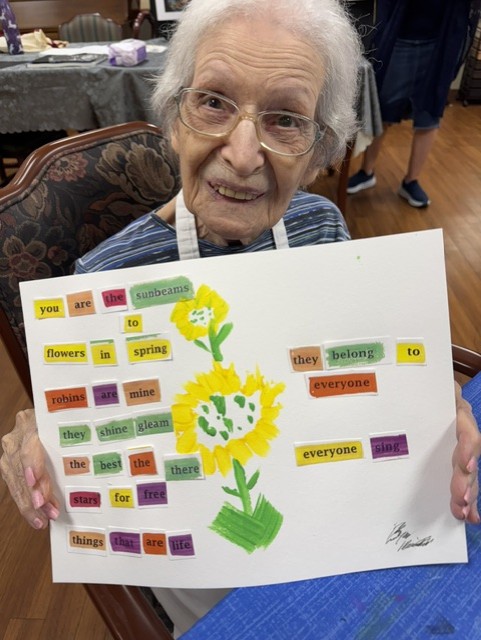I was giving a talk to a large group of older women living in a facility for Holocaust survivors. I had done several large studies on spiritual life in mainstream interfaith communities and was excited to meet this unusual population of women who had survived some of life’s most terrifying situations.
They gathered silently at the appointed time of my presentation and I began to describe what I had learned about women living in dangerous realities. They listened to what I had to say but were profoundly quiet as I described my research. Finally, one of the women in attendance couldn’t stand the silence any longer.
“You don’t know what you’re talking about” she shouted, shaking her fist at me in uncontrollable gestures of anger and pain. “You don’t know anything!” Her passion and her pain were intermingled with the reality of what she had experienced. I was another example of an uncaring public that didn’t really want to hear her stories of atrocities and terror.
Teach Me!
And I shouted back! “Teach me! Teach me what I need to know!” I didn’t know where those words had come from but my heart responded to her pain with the only words that I could find. “I want to know your pain. Tell me your story. That’s why I’m here and I promise I will listen.”
The group fell into a silence that filled the room with unspoken words and emotions. But it allowed her the space and the audience to begin to share her story.
And, of course, she was right. I didn’t know anything about the terrible cost of her survival. Living in a white, suburban neighborhood north of Chicago, my life was safe, predictable and reliable.
Living outside their war zone, I had no real awareness of what so many had suffered. I was just another useless voice that might or might not want to hear her story. I had given her permission to speak. But her pain filled the room with unspeakable atrocities.
More Telling than Spoken Words
And I discovered a truth that also filled the room. Some experiences are almost impossible to talk about. Sometimes, permission has to be repeatedly granted to allow truth to emerge.
Sometimes silence is more telling than spoken words.
Teach me what I need to know. Tell me what you have experienced and learned, and I promise that I will listen.
Passion is an invitation to seek the truth and to speak of the unspeakable. But the final judgment is based on what the heart can release.
Opening a Door to Truth
In telling me I didn’t know what I was talking about, a door had been opened to allow the truth to emerge because she was correct in her assessment of who I was. I didn’t know their stories and their pain.
But I had also given her permission to speak. In my willingness to listen, the women had permission to speak out of the silence of their pain and in that space, healing found a place to open.
Praise God! Thanks be to God!
Amen.
For Reflection (either individually or with a group)
Read the blog. Read it a second time, maybe reading it aloud or asking someone else to read it aloud so you can hear it with different intonation and emphases. Then spend some time with the following questions with words, crayons, clay, paints, or anything that helps you reflect more deeply.
- When do you find it difficult to listen to another’s story?
- What story is your heart yearning to tell but you don’t feel that people want to listen?
- What one or two things could you do to be more open to listening and truly hearing other’s stories?
Download a pdf including the Reflection Questions to share and discuss with friends, family, or members of your faith community small group.
View all articles by:






















